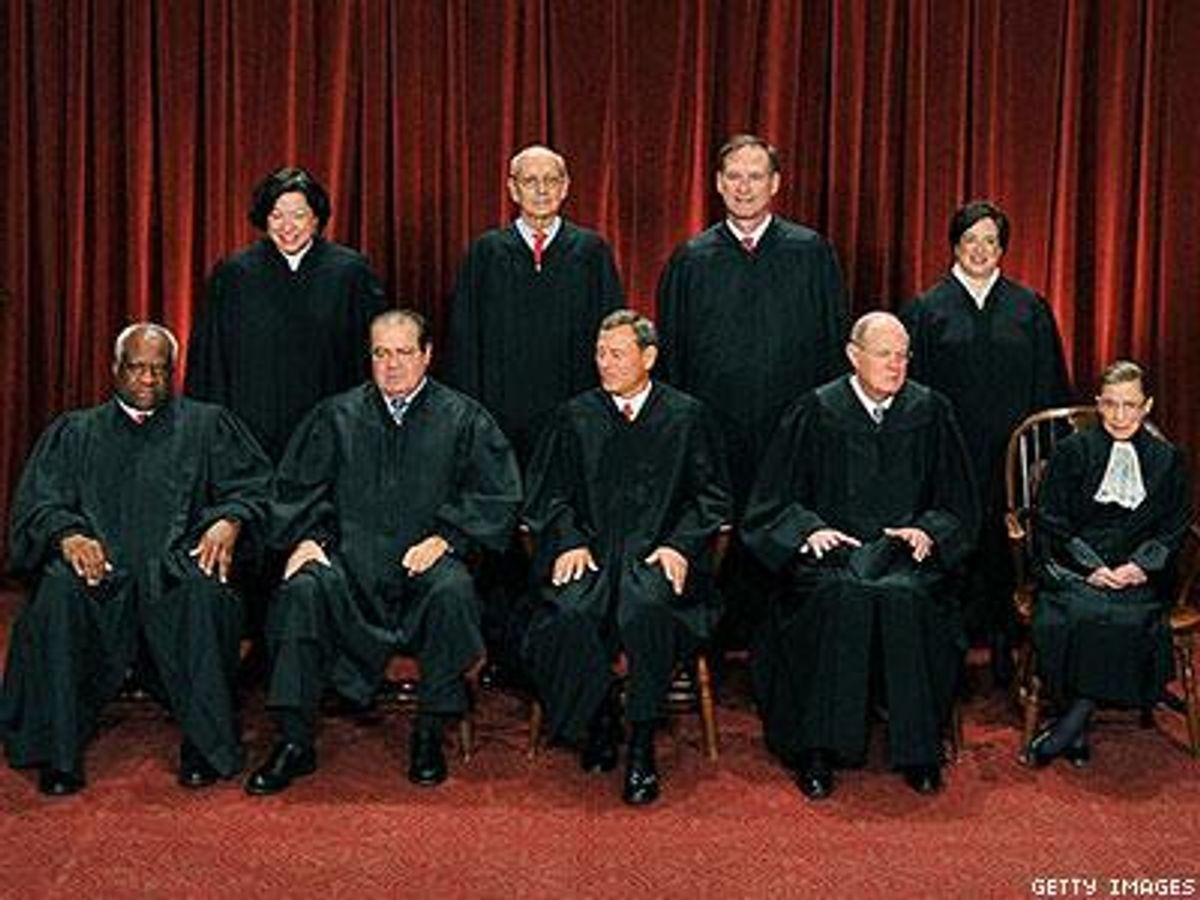The Sixth Circuit's ruling last week that upheld marriage bans in four states essentially calls the U.S. Supreme Court's bluff that there's no urgent need for a definitive answer from the nation's high court, all but daring the justices to take up a marriage case. Whether or not they'll accept the challenge remains to be seen.
Last month, Justice Ruth Bader Ginsburg suggested that the justices had denied cert in several marriage cases because all of the lower courts were in agreement on marriage. But with last week's Sixth Circuit decision, a federal court has finally bucked the trend and upheld marriage bans in Kentucky, Tennessee, Ohio, and Michigan in a single ruling. The plaintiffs have already announced their intention to petition the Supreme Court for review. It seems likely that the Justices will want to resolve the conflict between the lower courts, granting a writ of certiorari to hear at least one of those cases. But what if the justices don't?
The most immediate consequence to the Supreme Court denying cert to the Sixth Circuit cases: the state marriage bans would stand in Kentucky, Tennessee, Ohio and Michigan. Voters and politicians would then have to get to work on overturning the bans. All four states ban marriage by law and in their individual constitutions, and each state has a slightly different process for repealing both. It would take years for the bans to be completely overturned.
But the Supreme Court's refusal to hear the cases would have lingering effects beyond just the Sixth Circuit. Lower federal courts have been moving swiftly to overturn marriage bans in part because the Supreme Court has signaled that it does not take issue with repeal, demonstrated by its October refusal to hear marriage cases from five states, letting pro-equality rulings stand. But if the justices do the same with the Sixth Circuit rulings, it could be an indication that they also do not take issue with courts upholding bans, arguably giving lower courts would greater "permission" to do so.
In addition, the Sixth Circuit ruling explicitly upheld Baker v. Nelson as controlling precedent. Antigay attorneys have cited the 1972 ruling as evidence that the Supreme Court doesn't consider marriage equality to be a pressing federal matter. But because the high court has been silent on the case since the ruling was issued 42 years ago, most recent federal judges have interpreted the decision as overruled by subsequent doctrinal and judicial developments. If the Supreme Court denied cert in the Sixth Circuit cases, it would signal that the court sees no need to revisit and overturn Baker, thus validating the argument employed by antigay attorneys.
Several states in other circuits have pending federal litigation, with the most immediate being Louisiana and Texas, scheduled for a hearing in early January. If the Supreme Court were to deny cert before then, it would increase the likelihood of an anti-equality decision in those states, leading advocates to pursue equality through the ballot and legislature as well.
Get up to speed on the state of our unions below:


















































































